The BlackBox 120 and 135 scanning systems from BlackScale Lab started with a shoebox and a Pringles can. Today, it’s a fully developed compact DSLR/mirrorless camera scanning system designed by a photography enthusiast who builds medical imaging systems during the day. The BlackBox 120 is the latest release from BlackScale Lab following the success of the BlackBox 135 system for 35mm film.
The BlackBox 120 is built to adapt to most digital cameras with interchangeable lenses by using a clever filter ring and height extension design. Except for a DSLR/mirrorless camera and lens, the BlackBox 120 kit includes everything needed to start scanning negatives. It arrives with a base, Rybozen C400 5×4 inch Light Panel, height extensions (from 20mm to 150mm), lens mount, step-up filter rings (from 82mm to 37mm), and film carriers for the various formats of 120 film (6×9, 6×7, 6×6, 6×4.5).
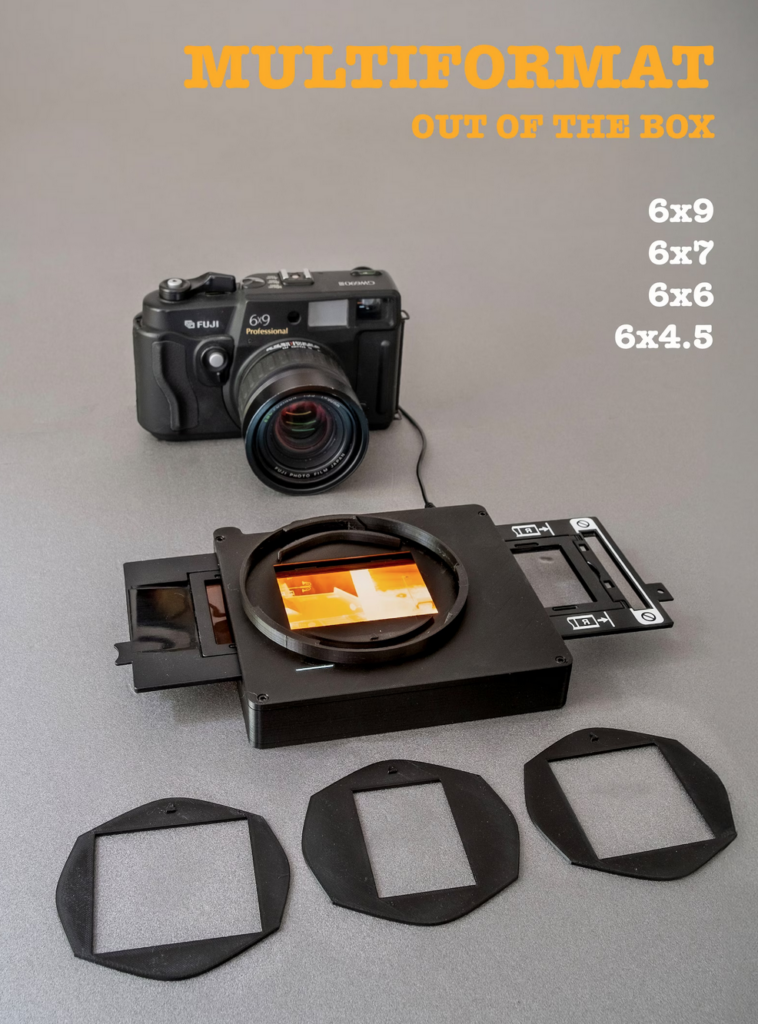
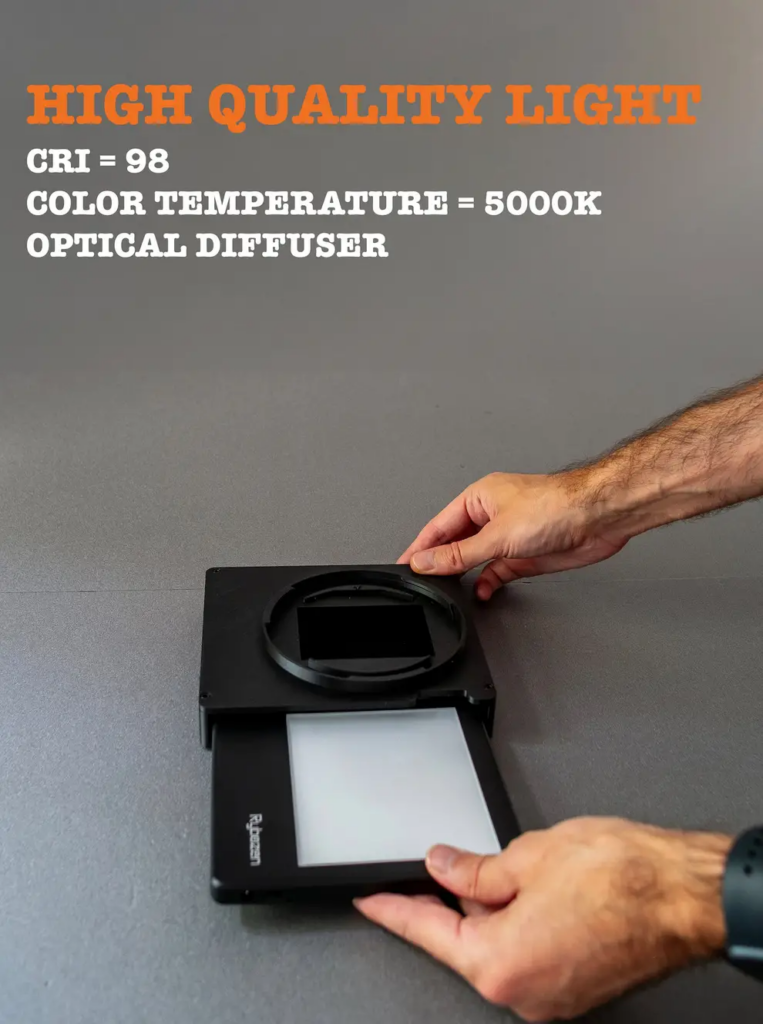
The light panel is rated at a high-quality CRI-98 with an optical diffuser over the illumination area of 125 x 100mm. Powered over a USB-A cable, the Rybozen light can also be used independently of the BlackBox 120 system.
Constructed with high-density PLA and ABS materials, the system is designed for maximum stability. No levelling or alignment is needed as the film plane is set up to be parallel to the lens from the start. The step-up rings and height extensions keep ambient light completely out of the system. These extensions are connected with a bayonet lock and if needed, additional extensions can be requested from BlackScale Lab. Using the extensions included, the BlackBox 120 can work with lenses up to 140mm which may be needed for scanning 6×9 negatives.
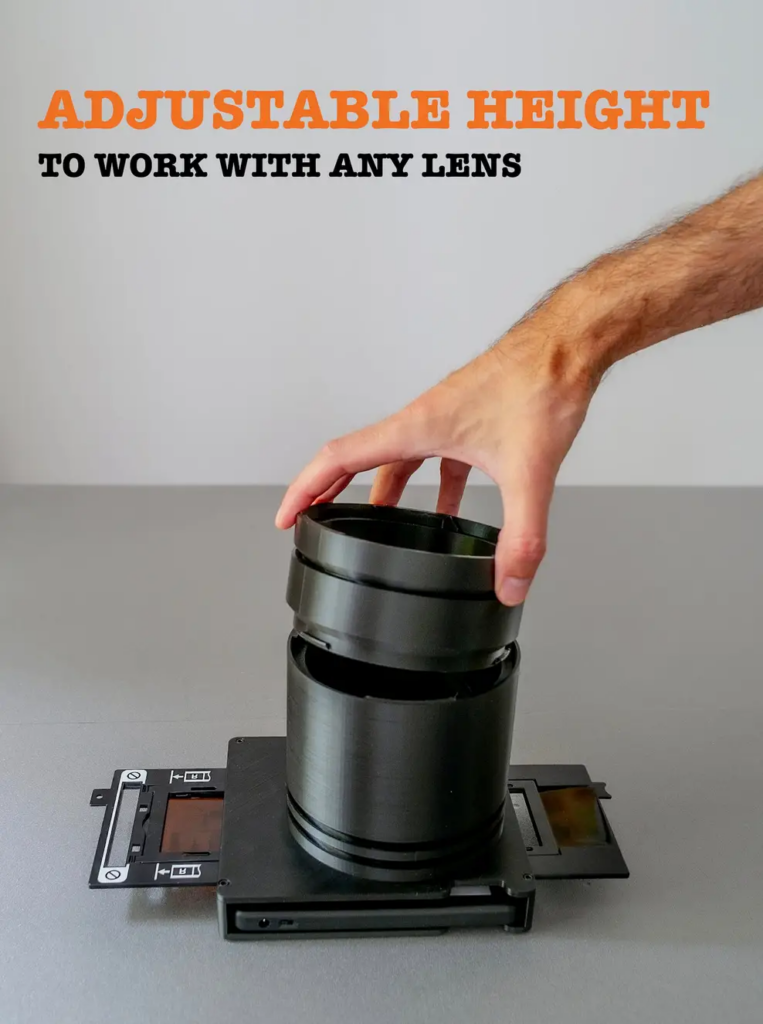
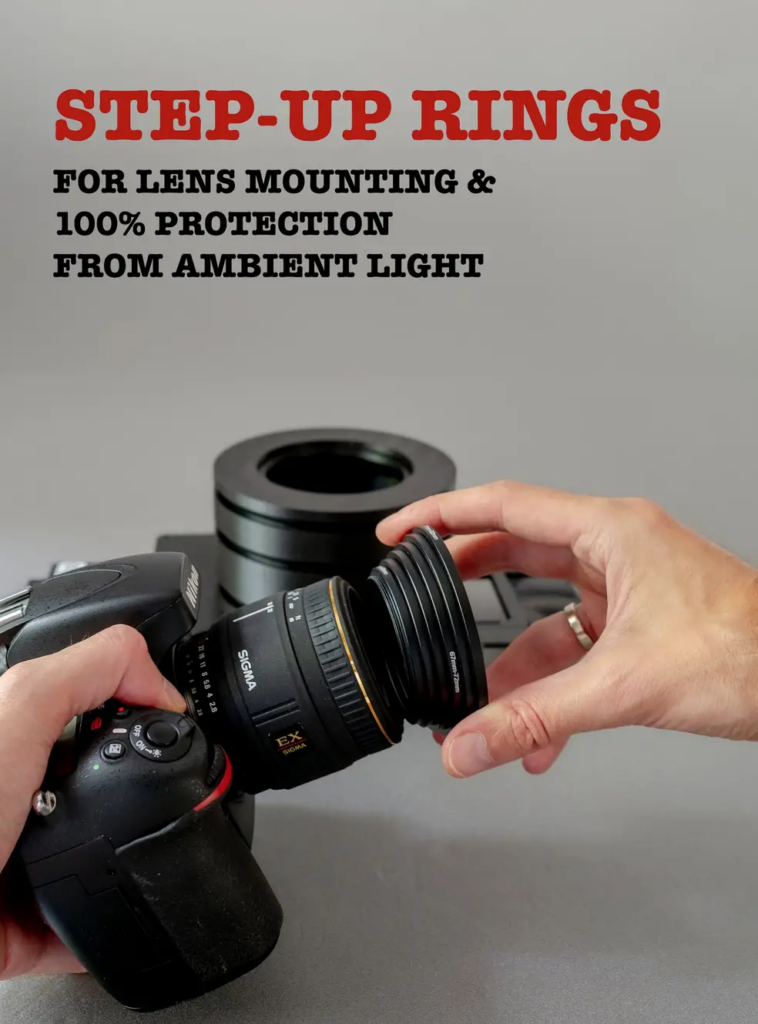
The film holder is a Canon Film Guide QM3-2695-000 which can hold 22cm of medium format film that has been cut as well as the 120 format masks. It can hold up to 2 6×9, 3 6×7, 3 6×6, or 4 6×4.5 frames at a time. BlackScale Lab says the distance between the film plane and the diffuser (which is 7.5mm) is designed to be able to push any dust particles on the light table out of focus. Dust is always a concern for film photographers who scan at home, so this is a particularly welcomed feature.
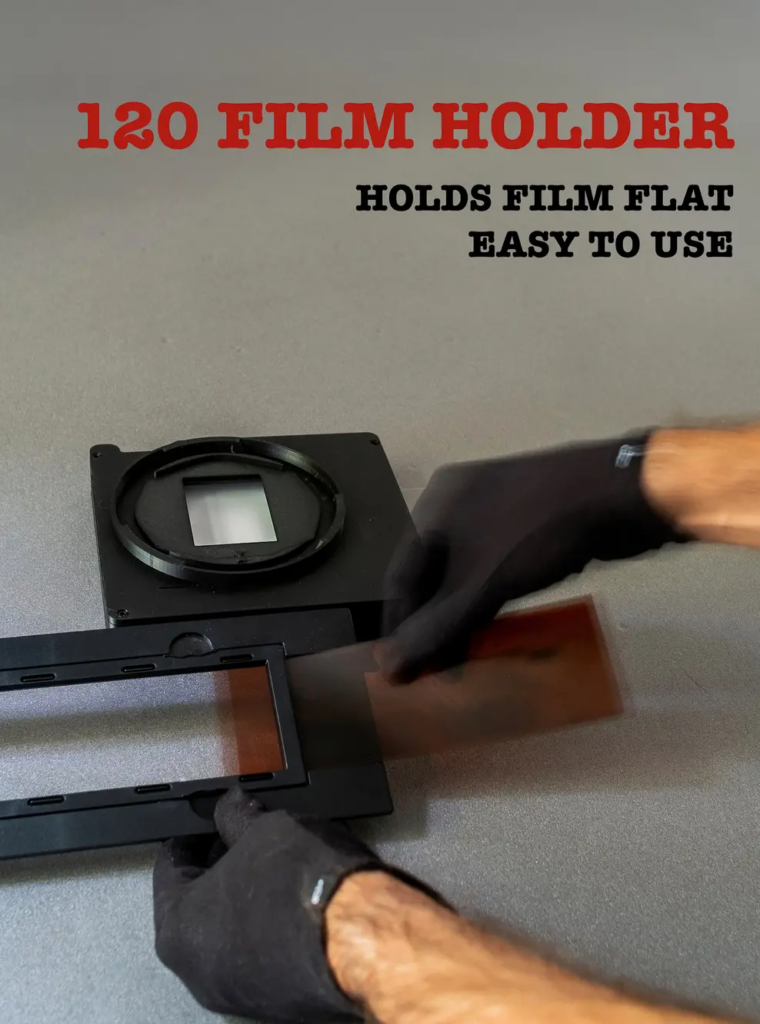
BlackBox 120 is available from BlackScale Lab’s shop (linked here) for £242.35. The 135 system is also available for £150.79.
We asked the creator, Dmitry Bozhko, more about the system and his journey into film photography which began during the 2020 pandemic. He was kind enough to give us further insight into his process of bringing to life the BlackBox scanning systems.
35mmc: How did you get into film photography? Your website mentioned you started in 2020, but what inspired you or led you to shoot film?
DB: Like many of us, I was shooting digital for a long time but always gravitated towards film’s nostalgic look. The hope to recreate film aesthetics pulled me to the Fuji X system at some point, but that was not good enough. When COVID gave me a quiet time to contemplate the absurdity of making digital photos look like analogue photos, I realised that the only way to get a film look is to actually shoot film. From there, I dived into a rabbit hole of old cameras, film stocks, and, eventually, film scanning. It became a surprise for me at the start, that there is a global film community which is active and expands on a daily basis.
35mmc: I’m also curious about the process you went through to create the BlackBox system – how was it like to produce it from start to finish?
DB: My professional background is in product development in the field of medical imaging. I build imaging systems for cancer detection, diagnostics of arteries, and other applications in medicine and pharma. Attempting to build a system for film scanning was a natural instinct for me. The first BlackBox was built out of a black shoe box and a Pringles can. I scanned with a prime lens and a set of macro rings. The screen of my phone was my light table. Results were terrible. But feasibility was clear, it showed two things: 1) a film scanning setup is not a rocket. It is just a ‘black box’ with a light source. Anyone can build their own. And 2) the system should be designed for film scanning from the beginning to exclude all unnecessary adjustments, alignments, and masking like with a copy stand setup.
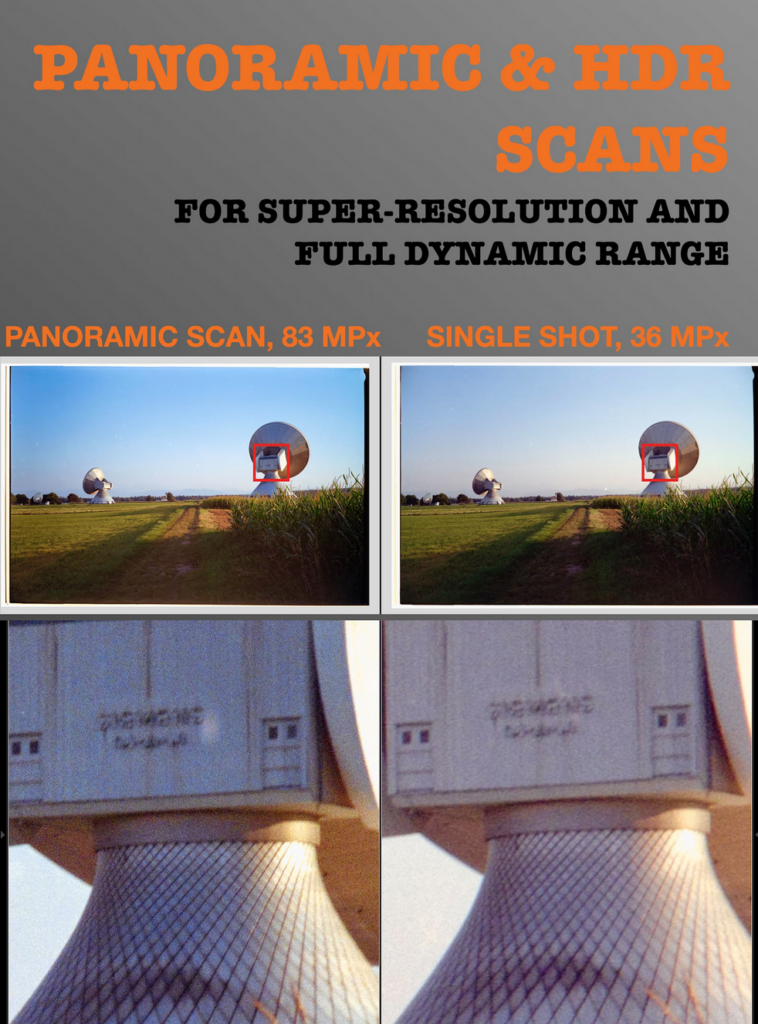
One of the biggest challenges Dmitry describes in the process was adapting the system to the various types of cameras and lenses.
“There is one challenge that really sticks out because it took me around 50 prototypes to solve. Everybody uses their own lens and camera for scanning their film. The lens dictates the distance you need to place your camera from the film plane. In the beginning, I asked each buyer what lens they used and 3D printed BlackBox of a specific height for their setup. But it didn’t work well. I was sometimes miscalculating the working distance of the lens and the system did not work properly.” – Dmitry Bozhko, BlackScale Lab
He solved this with the stackable height extension rings which allow users to obtain a variation of distances between the lens and the film negative plane.
“It was a challenge to find a good way to connect the height extension rings in an easy but reliable way. I designed a connection similar to a lens bayonet. You simply place one ring on top of another and rotate 10-15 degrees clockwise to lock it in place. Such connections are difficult to 3D print. It took many iterations to get perfect tolerances and to make them feel right.” – Dmitry Bozhko, BlackScale Lab
Aside from the design challenge, Dmitry also mentions the fear of critique when initially releasing the product to the public.
“What if I missed something and the system will not work when people buy it? Actually, that’s what happened in the beginning, when I miscalculated the working distances. I’m very thankful that people gave their feedback and allowed me to fix my mistakes. Over the last year the design of BlackBox has evolved far beyond what I could do myself.” – Dmitry Bozhko, BlackScale Lab
I asked what the future holds for BlackScale Lab. Dmitry tells us he is currently focused on enjoying the interactions with BlackScale Lab customers and connecting with like-minded film enthusiasts.
“We discuss equipment, techniques, film stocks. I want to keep connected with the community and people using BlackBox. This means I will not expand the device portfolio of BlackScale Lab too much. It will remain a small and cosy business – as opposite to mass production as possible.” – Dmitry Bozhko, BlackScale Lab
To find more information about BlackScale Lab, head over to the website linked here or follow the Instagram account for updates here.
Share this post:
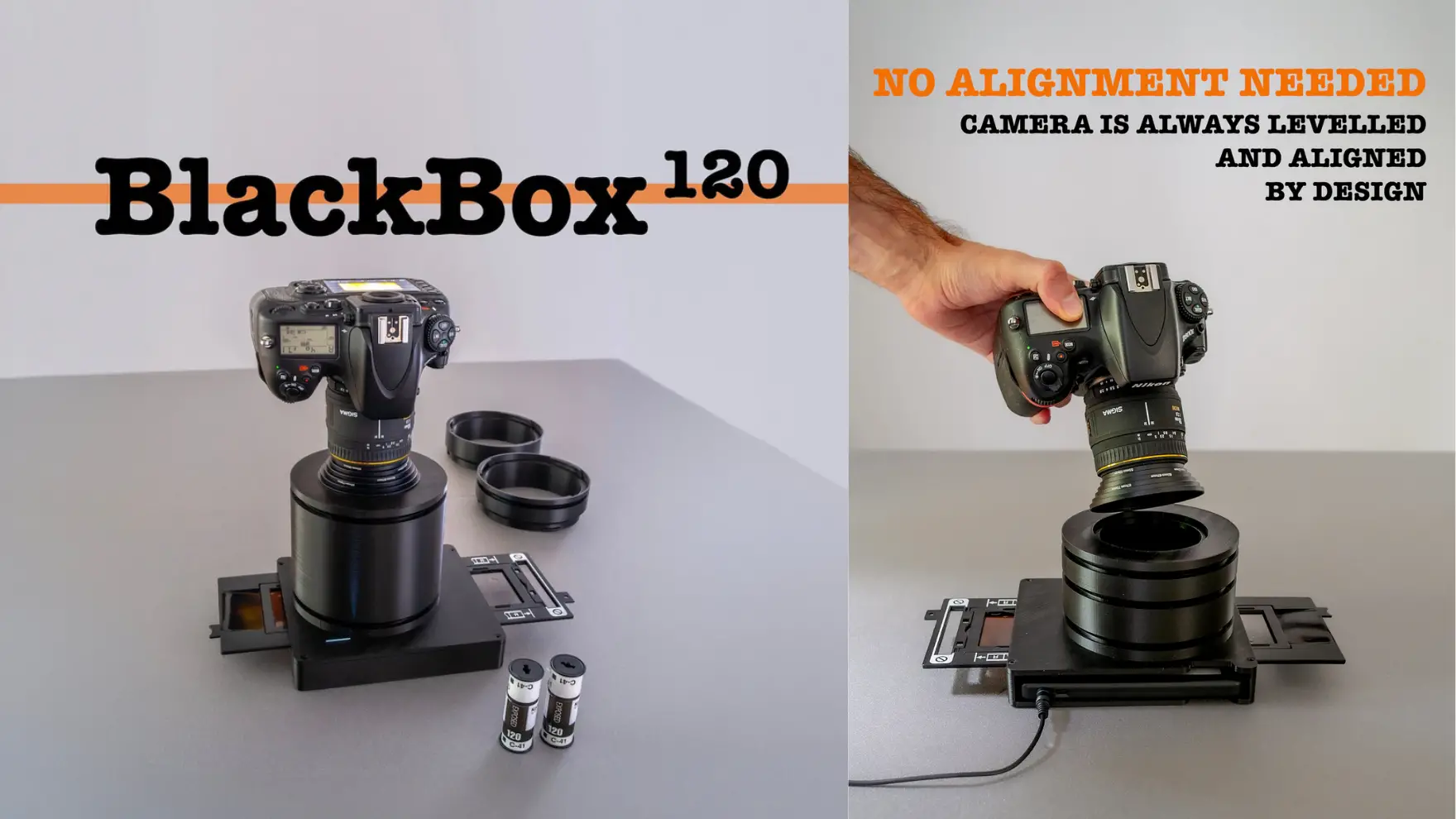
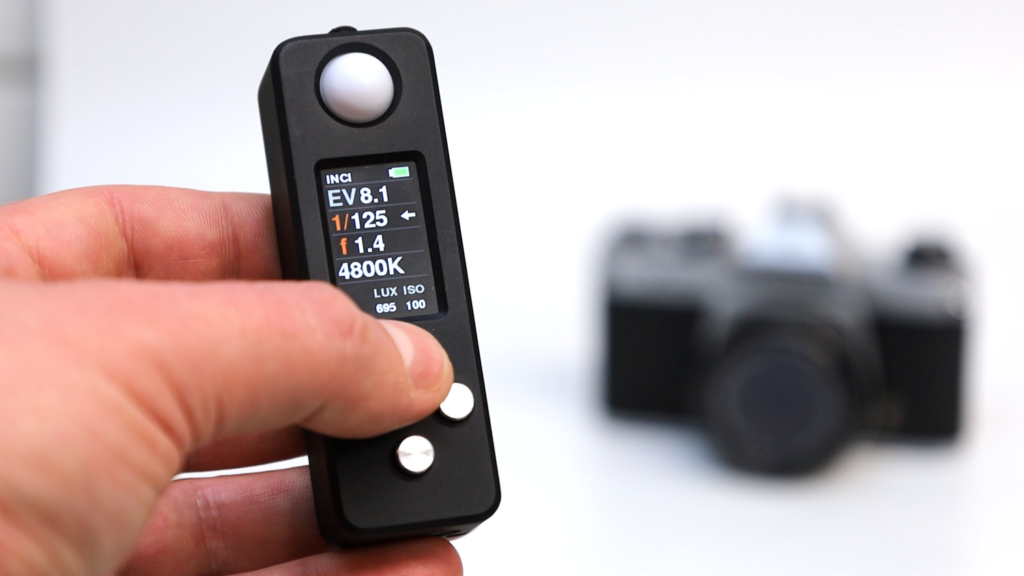
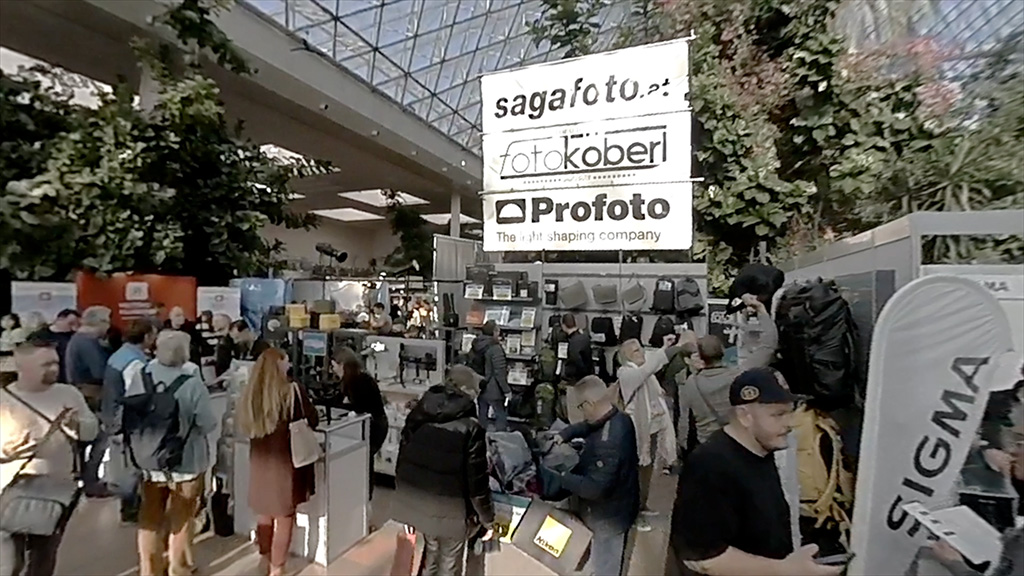
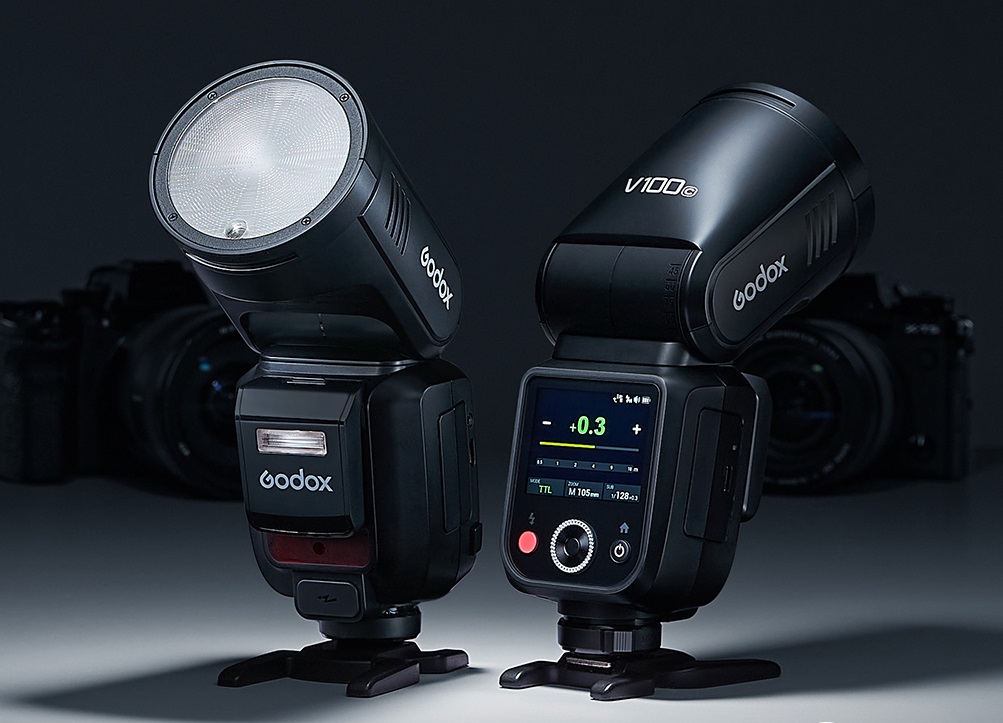
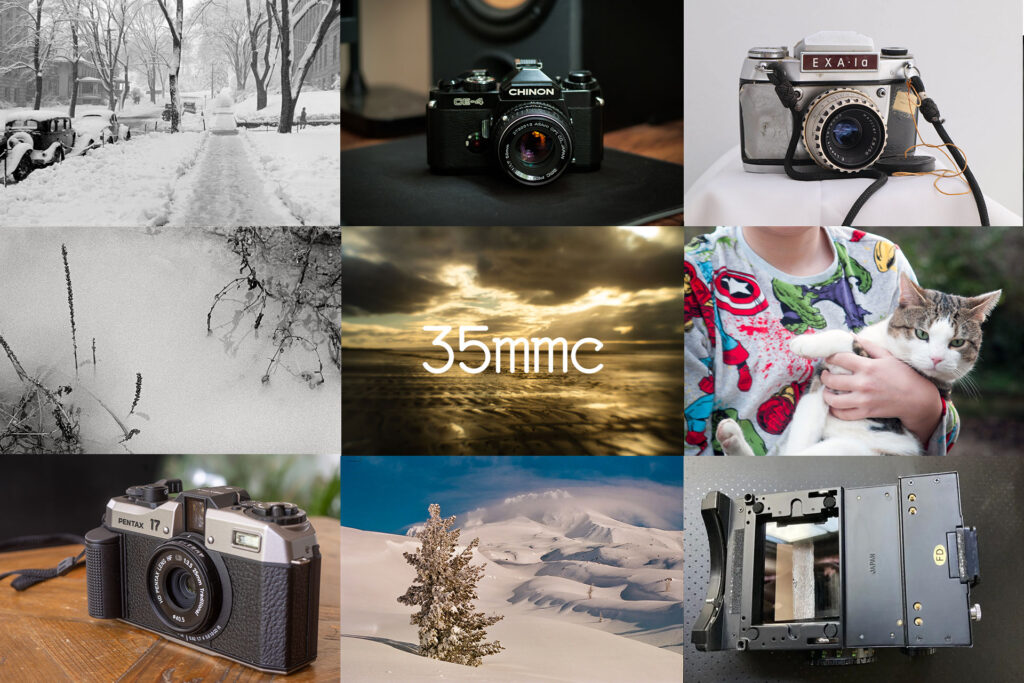




Comments
Wes Hall on NEWS: BlackScale Lab Releases BlackBox 120 for Medium Format Film Scanning After 35mm Success
Comment posted: 13/01/2024
I appreciate that so many are trying to offer alternatives for home scanning, but the costs seem prohibitively high for what amounts to 3D printed plastic kits- compared to say the components in a flatbed scanner (used) for a similar or lower price.
I've had misgivings about my Pixlatr, but the price point is spot on that you don't mind it being less than perfect.
If these systems, even without a light panel for instance, can be scaled back to costing around £100 or less, I could see a big push on sales.